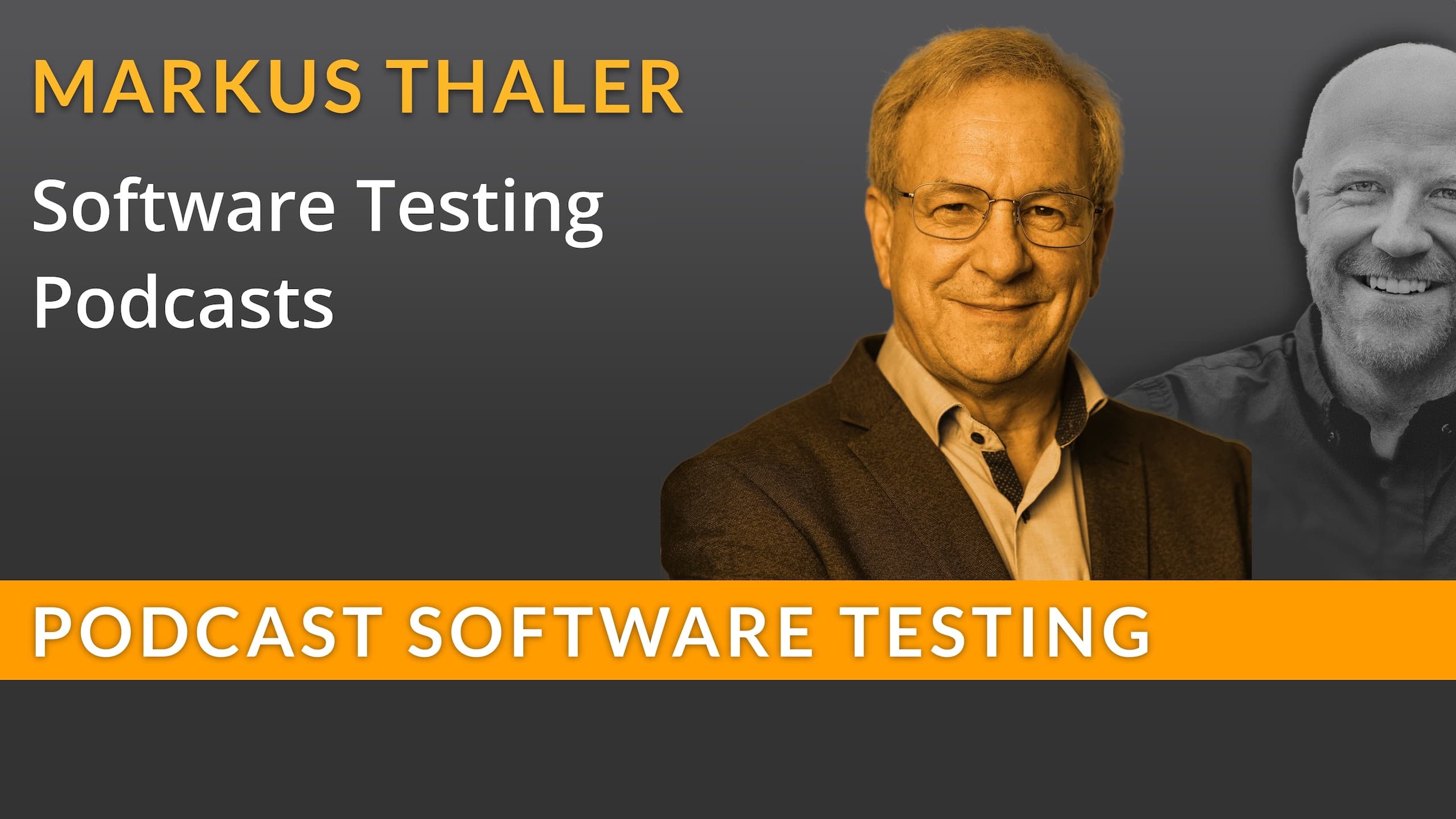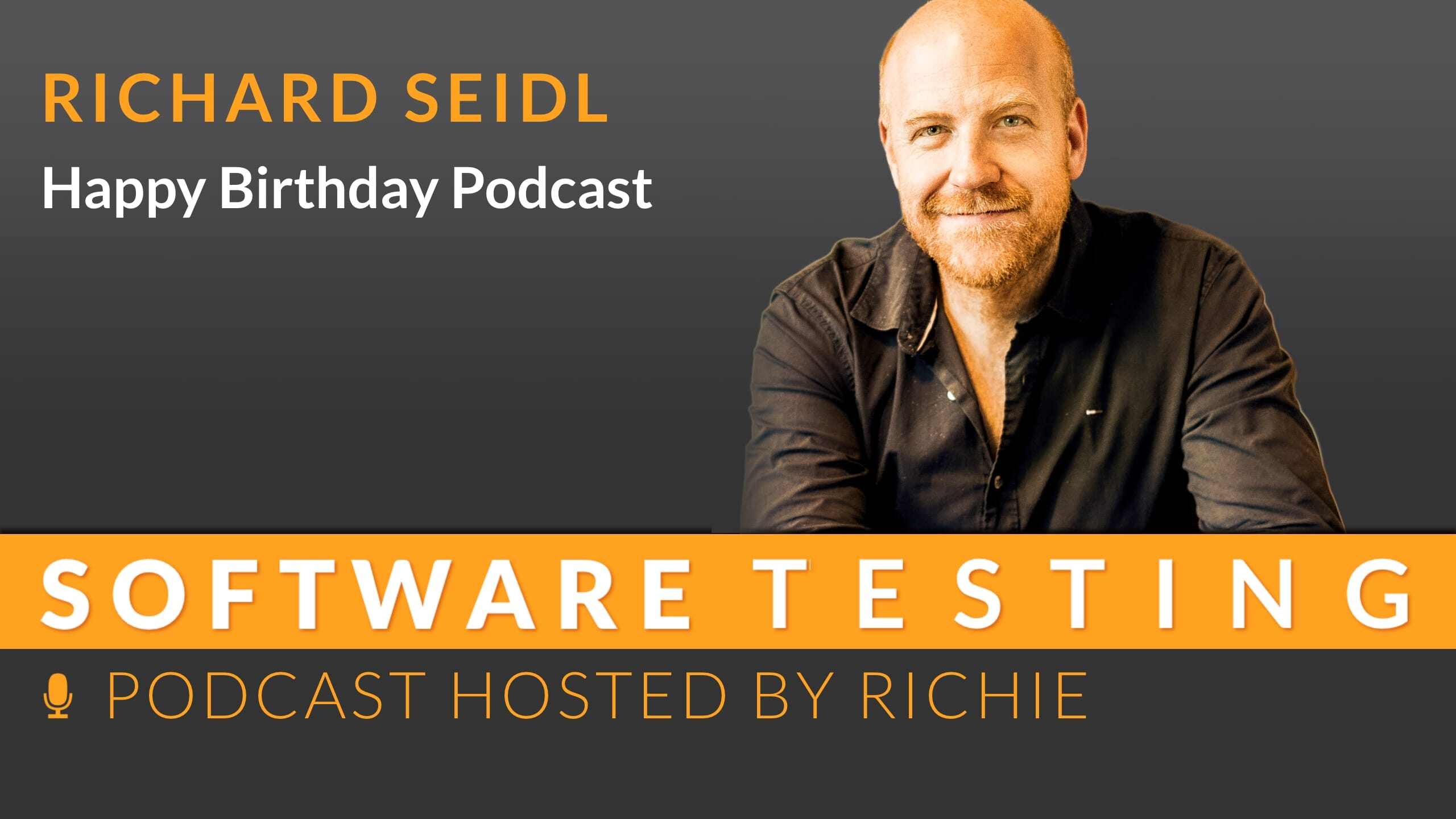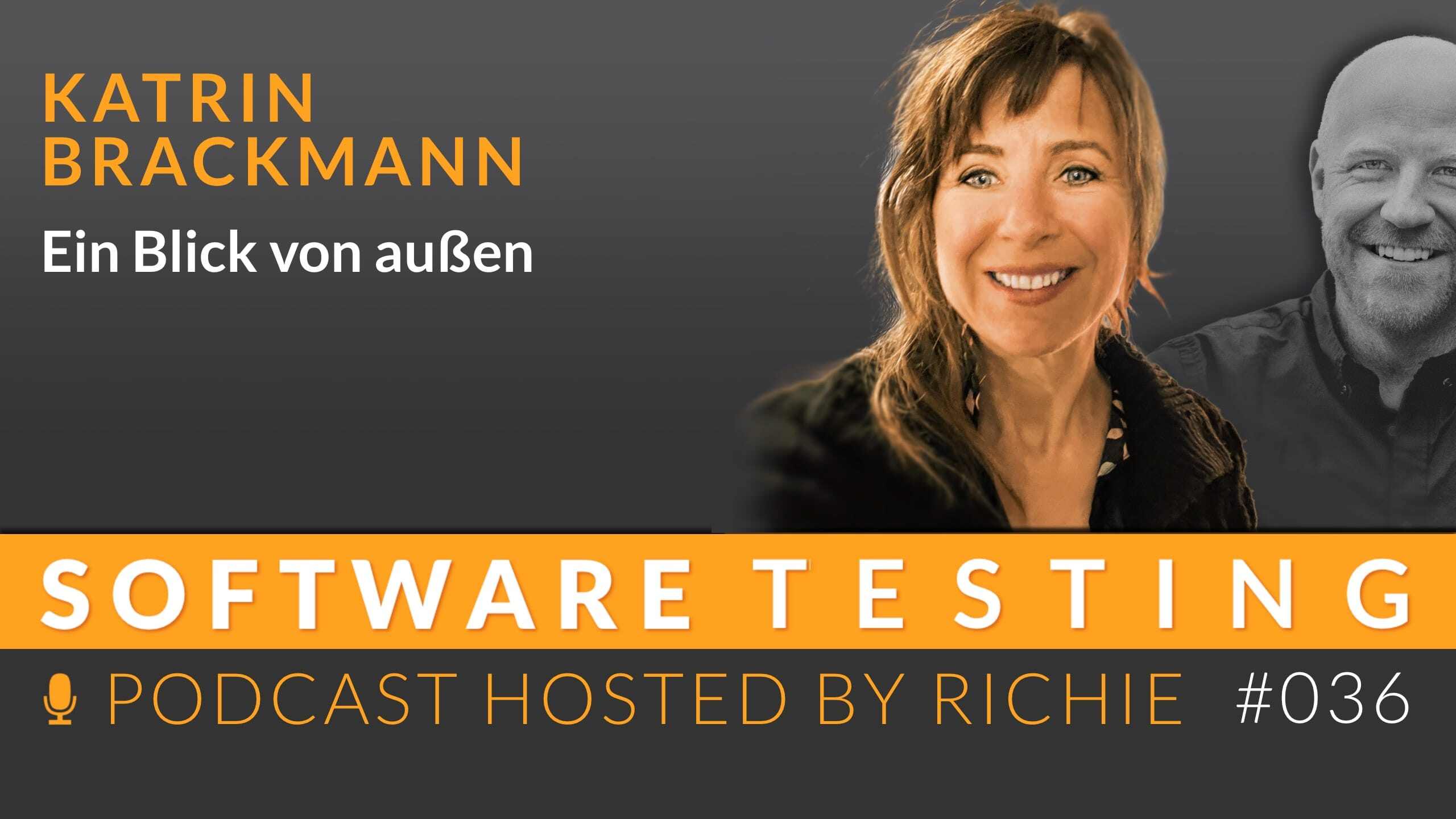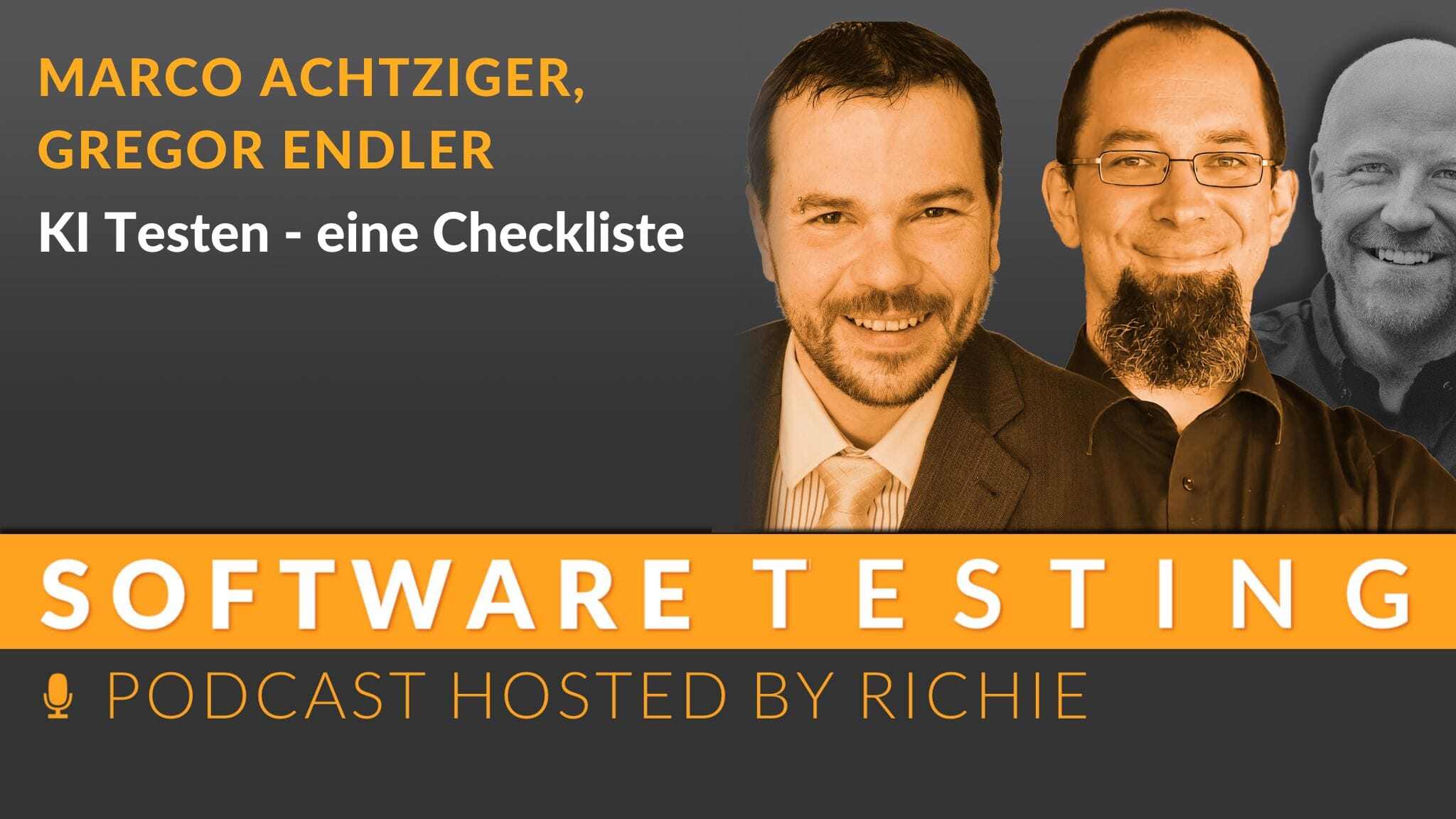1 min read
Happy Birthday Podcast
Today is the day: Happy 1st Birthday, Podcast! The first year is over and I’m looking back. Back to the birth of the idea of making a podcast for...

Podcasts for testers provide an innovative platform to effectively reach target audiences and shed light on the motivation behind the creation of audio content. Compared to other media formats such as blog posts and webinars, podcasts offer a unique opportunity to convey information in an engaging way. The production of podcasts involves various tools and procedures that are crucial for preparation and execution. An insight into the processes and strategies of podcasters reveals how this form of content creation works and the challenges that need to be overcome.
In this episode, I talk to Markus Thaler about podcasts for testers. Markus, host of the Qytera podcast Agile Testability and I chat about our motivation, target groups, the comparison to other media such as blog posts and webinars and take a look behind the scenes of podcasting. What tools and procedures do we use for preparation and production? What are the processes like? - They provide an insight into the world of the two podcasts. This episode also appears as a crossover episode in the Agile Testability podcast.
"It's about giving the community a suitable learning and exchange medium" - Richard Seidl, Markus Thaler
Markus Thaler worked at Commerzbank for 22 years, where he was responsible for test standards, test tools and test automation in a central function for more than 10 years before spending eight years as a test manager in Commerzbank's risk function after a stopover in test infrastructure management. Prior to Commerzbank, he gained testing experience at Lufthansa, Siemens, Nestle and DZ-Bank. At Qytera, he worked as a senior test manager, test architect and trainer. He is currently working in the role of test manager as a freelancer in an agile project in the energy industry.
Podcasts about software testing are becoming increasingly important for testers and developers in today's digital landscape. This form of knowledge sharing provides an effective way to learn about current trends and best practices in software quality.
The relevance of podcasts can be seen in several aspects:
This form of learning is particularly valuable in a fast-changing environment such as software development. The opportunity to learn directly from experts and hear their perspectives contributes to further education and inspiration. One example of such a podcast is the AGI Testability Podcast, which covers various aspects of software testing and builds an engaged listener base.
The podcasts arose from a clear motivation: the need for more exchange and discussion in the software testing community. The start-ups were largely driven by requests from the community for video contributions and stimulating conversations.
The joy of dialog plays a central role. Conversations with experts and members of the community are not only informative, but also promote a sense of belonging. This interaction creates a platform where testers, developers and project managers can share their knowledge.
Feedback from listeners is another important aspect of podcasts. Many listeners report positive experiences, especially when they have tried out ideas or approaches from the episodes. This illustrates how valuable such formats are for further training and knowledge sharing within the industry. The support from the community motivates the podcast's creators to continuously address new topics and provide relevant content.
The software testing podcasts are aimed at a diverse target group that includes various roles in the field of software development and quality. These include:
Defining these target groups allows the podcast to create content that addresses specific needs and interests. To increase the reach, partnerships have been entered into with platforms such as Heise Developer. These collaborations broaden the audience and bring additional perspectives to the discussion.
These strategic partnerships not only diversify the audience, but also enrich the variety of topics. This leads to an exchange that is valuable for everyone involved. The two podcasts are thus positioning themselves as a central source of information for all players in the software testing community.
Podcasts about software testing offer numerous advantages that make them an attractive choice for testers and developers. One of the most important benefits is flexible consumption. Listeners can enjoy this content during everyday activities such as commuting, exercising or doing housework. This flexibility allows listeners to integrate knowledge and information into their busy schedules.
Despite these positive aspects, there are also challenges in podcast production. One of the biggest hurdles is one-way communication. While podcasts provide valuable information, they often lack the opportunity for direct feedback or interaction with the audience. This can lead to important perspectives or questions from listeners being left out.
In addition, many podcasters rely on collecting feedback through other channels, which makes the exchange between host and audience more difficult. Especially with a topic like software testing, which is constantly changing, limited feedback can affect the development of the content.
Balancing these benefits and challenges is critical to the success of a podcast and its ability to build an engaged community.
The podcasts cover a wide range of topics critical to testers and developers. Some of the key content includes:
The variety of topics covered is also reflected in future episodes. Of particular note is the focus on Artificial Intelligence. This includes, among other things, AI certification, the relevance of which is constantly increasing.
Future episodes will not only shed light on technical aspects, but also on the influence of artificial intelligence on the test process and the qualifications of professionals. The podcast thus offers a platform for in-depth discussions about innovations in the field of software testing.
The combination of current trends and best practices makes the AGI Testability Podcast a valuable resource for anyone working in the software testing industry.
The technical implementation of the podcasts is done with the help of modern tools that support both the recording and editing of the episodes. The preferred programs include:
It is important to emphasize that the quality of the software we use is crucial to the success of our podcast. In this context, we refer to the future of software testing, which involves new technologies and methods. A strong awareness of quality and continuous learning are of great importance.
The podcast episodes are distributed via various platforms in order to reach a broad audience. The main channels include:
This strategic selection of platforms not only increases the visibility of the podcast, but also enables uncomplicated access for listeners. The combination of high-quality technical tools and targeted distribution strategies makes a decisive contribution to the popularity and reach of the podcasts.
Software testing podcasts have become an important part of the industry. They provide a platform for sharing ideas and experiences that are relevant to testers, developers and project managers alike.
One important aspect covered in these podcasts is the dovetailing of software testing and development. In the future, software testing will be even more closely integrated with development. It is crucial to learn how quality requirements and methods evolve.
In addition, personal factors play a significant role in the process of personality development, which can strengthen the agile mindset in the team. Individual values have a direct influence on collaboration and success.
The development of these formats will continue to open up new perspectives and deepen the understanding of software testing.

1 min read
Today is the day: Happy 1st Birthday, Podcast! The first year is over and I’m looking back. Back to the birth of the idea of making a podcast for...

Katrin is an artist, coach and communication designer, and has also been my partner for several years. While my listeners and I are right in the...

What questions should be asked when testing AI and what can testers learn from data scientists? Marco Achtziger and Gregor Endler provide insights...